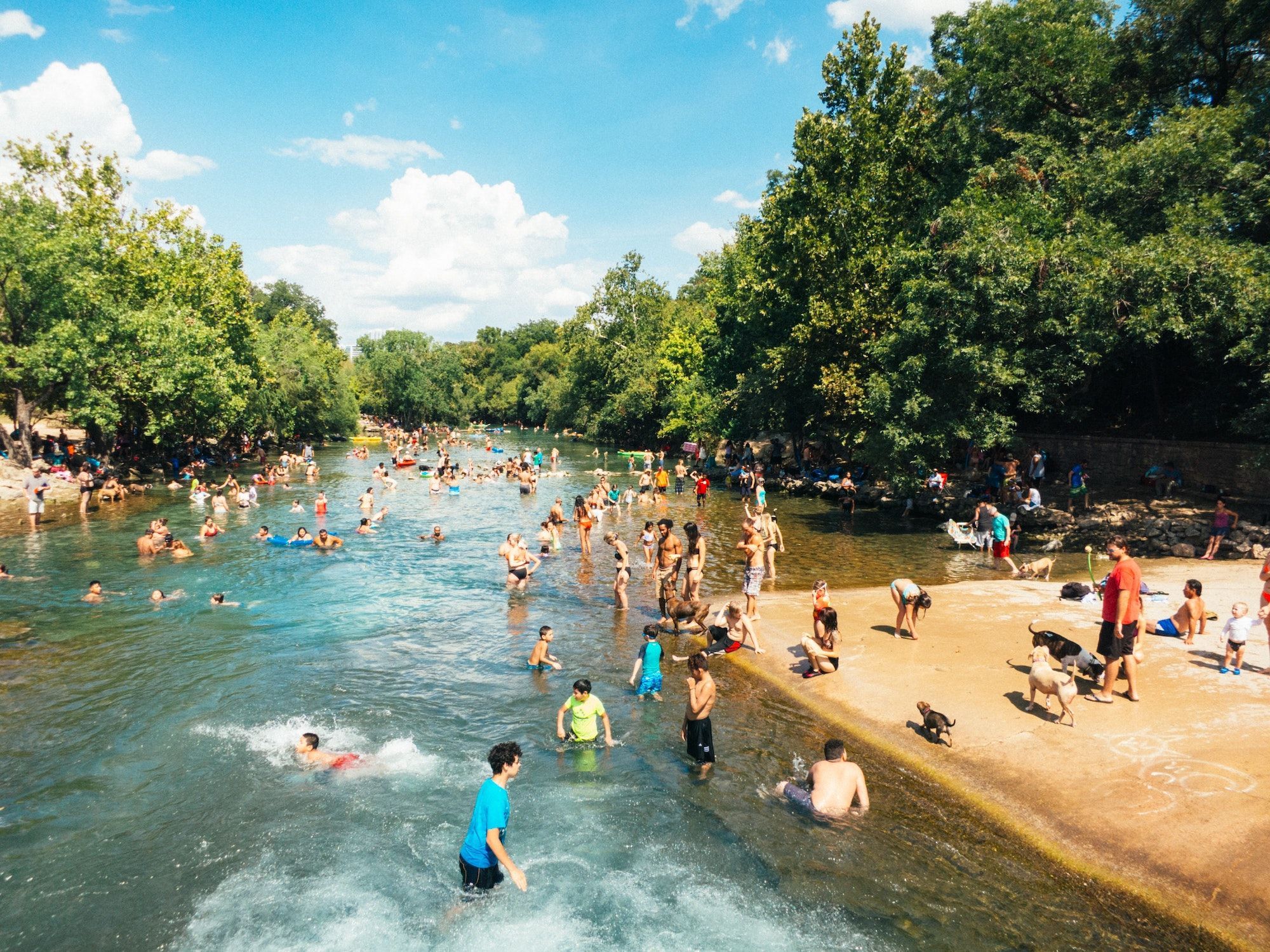There’s a lot that goes into a successful team offsite, including logistical retreat planning, selecting a destination and/or retreat venue, planning activities and all-hands, and so much more.
In helping hundreds of small teams and larger organizations alike plan and execute their perfect retreat, the Flok team has learned a thing or two about what to do (and not do) along the way. Below, we’re sharing our top tips, resources, and guides.
How To Plan A Company Retreat

From selecting a destination to sorting out logistics, building an itinerary to finding catering, the planning process can be overwhelming — not to mention time-consuming. Here’s what we suggest:
- Define the goals of your company retreat
Why are you bringing your team members on a retreat? That’s the first question you should be asking yourself. Perhaps you want to get together to reflect on past performance or hammer home the company’s vision? Or foster team bonding and psychological safety? - Begin thinking about a retreat location
With considerations for budget (which is the biggest determinant of domestic vs international), retreat goals (team-building is more conducive to an all-inclusive with ample activities, for example), duration, and time of year. More on this below. - Be smart with your choice of venue
To ensure you have things like fast WiFi, workspace and conference rooms with suitable tables and outlets, AV setup, etc. - Ask about food & beverage programs
Oftentimes, hotels will provide a food and beverage minimum for large groups — the bigger the minimum, the cheaper the rates. - Plan retreat activities, but leave room for flexibility
Depending on your company goals, you may want allocated unstructured free time as part of the retreat agenda to allow your employees time to catch up on slack messages and emails, relax, or embark on activities independently or with small groups. More on this below.
READ MORE: How To Plan A Corporate Retreat: A Step-by-Step Guide
How To Select A Destination

Most of the time, when companies turn to Flok for help planning their retreat, they don’t have a destination in mind…that’s where we come in. There are several factors we consider when advising on where to go, including:
- Duration
Even if your budget allows for an international trip, your allocated retreat duration may not. As a rule of thumb, we recommend stays of at least one week for international trips to account for travel time, jet lag, etc. For domestic trips, 3 nights/4 days can work well. - Consider proximity to major airports
Otherwise, you’ll be spending more time (and money) on transportation — think shuttle buses, trains, jumper planes, etc. - Don’t forget about the language barrier
Since it can complicate things such as in-destination transportation
READ MORE: 20 Best Corporate Retreat Destinations (U.S., Europe, Mexico, Caribbean)
How To Plan Work Retreat Activities

While activities at work may have a bad rap for being, well, awkward, that doesn’t have to be the case. With a little planning, you can transform otherwise uncomfortable icebreaker games into fun activities that boost camaraderie and employee engagement while encouraging everyone to step outside of their comfort zone.
We recommend activities that range from active and outdoorsy to more laid-back in order to accommodate people’s preferences and comfort levels. The goal? Host fun games that foster teamwork and a collaborative spirit for everyone.
READ MORE: 15 Great Team-Building Activities For Work
Scavenger hunts, cooking classes, karaoke, happy hours, escape room, five minutes of fame, game nights, wine tastings, & more.
How To Think About The Benefits Of Retreats (& ROI)

“Retreats have gone from a ‘nice to have’ to ‘must have,’” argues Edward Sullivan, CEO of Velocity Group, in an article on Axios. Kerry Goyette, founder and president of Aperio Consulting Group, agrees. “After over a year of working from home and not having these tiny little social interactions, people are starting to feel a crisis of belonging.”
The top reasons why getaway is one of the best investments you can make for the bottom line post-pandemic?
- To build psychological safety
Defined by Harvard Business Review as “the belief that one can speak up without risk of punishment or humiliation,” psychological safety is a prerequisite for effective brainstorming, decision making, innovation, professional development, organizational efficiency, and overall well-being at work. - To align on shared goals & prevent a siloed work culture
In a remote work environment, it’s all too easy to fall into silos by focusing exclusively on your team’s goals, metrics, and deliverables. - To retain a company culture of flexibility without sacrificing connection
Corporate retreats present a great opportunity for concentrated interaction that offers the cultural benefits of spending every day together in an office without the rigid in-person structure that can increase turnover and deter new talent. - To reward employees for their hard work
The importance of public, positive acknowledgment of work has been widely studied, with research indicating that it improves happiness and feelings of loyalty while improving employee retention. In a remote or hybrid work environment, many companies are turning to retreats as a way to do just this.
READ MORE: 4 Benefits Of Corporate Retreats For Hybrid Or Remote Teams
Looking for more company retreat ideas?
Here’s how other team retreats have come to life with the help of Flok:
- 7 Days. 12 Employees. 1 Unforgettable Jamaican Retreat.
- A Getaway To Monterey Bay With Storm Ventures
- What It’s Like Going To Austin For A Corporate Retreat
- New Culture Chief of Staff Ben Freedman Weighs In On The Team’s Napa Retreat
- A Greek Getaway For Customer.io
- A 4-Night, 5-Day Retreat In Playa Del Carmen With HigherMe
- How This Global, 8-Person Startup Planned Their Mexico Retreat
- Maven Goes Tropical With An Offsite In Costa Rica
- Meeting In-Person For The First Time In Playa del Carmen

